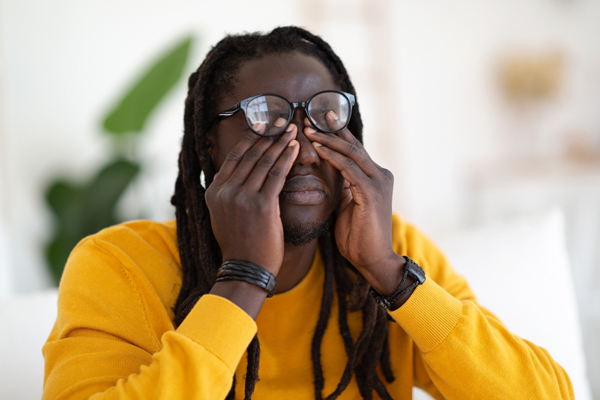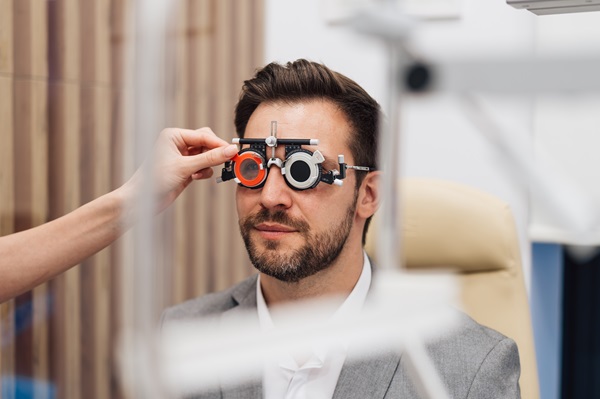Three Things to Ask Your Doctor if You Have a Family History of Glaucoma

Glaucoma is an eye disease that leads to damage of the optic nerve. This condition can cause permanent vision loss. Some people who are at increased risk of getting it are individuals who have family members who have it. If you have a family history of glaucoma, you should talk to your optometrist about the risk of getting it.
Family history of glaucoma
There is a strong hereditary component to most types of glaucoma. Based on several studies and experts, glaucoma is familial. Because of the link between glaucoma and family history, people with family members with glaucoma usually have a lot of questions. This is reasonable considering the damage the disease can cause. Here are three questions a person with a family history of glaucoma can ask an optometrist.
If a parent has glaucoma, will the children get it?
Family history is a risk factor for glaucoma. A child may not necessarily get it, but it increases the chances. Other people at increased risk of developing glaucoma are people who have certain conditions such as diabetes, myopia, and high blood pressure; those who are of Asian, African, or Hispanic heritage; and those who are over the age of 40. People with these risk factors are usually advised to have their eyes examined regularly to look for the disease.
What is known about family history and glaucoma?
A significant number of people with glaucoma have a positive family history. People with a sibling who has glaucoma are especially at risk of developing glaucoma, but that person may not know of the disease. Blood relatives are also at increased risk.
How can a person with glaucoma help other family members avoid glaucoma damage?
One way that a glaucoma patient can reduce vision loss from the condition is by making sure that family members understand they are at increased risk. The individual should suggest screening to close family members. This may include getting their eyes checked by an optometrist. This is important because it will help in the early detection of the disease. As a result, it can be treated in its early stages.
If it is not treated, glaucoma may cause permanent damage. People can lose their vision. Once someone's vision is lost, it cannot be restored. The best way a person can protect their eyes is by getting regular exams and seeking treatment if glaucoma is detected.
For some people, the topic may be hard to bring up, but it will help their family members significantly. Bringing it up at family gatherings is recommended. It will help all the family members to get the news in one place, and valuable information may also be gathered and shared when multiple family members are present. Family members should be aware of the risks they may face.
Frequently asked questions about glaucoma
Let us go over some frequently asked questions about glaucoma:
1. What is glaucoma?
Glaucoma is an eye condition that damages the optic nerve, which carries information from your eye to your brain. This destruction can lead to vision loss or blindness. Glaucoma typically occurs when the fluid pressure inside your eye increases.
2. Who is at risk for glaucoma?
Anyone can develop glaucoma, but certain groups of people are at greater risk. These include people over age 60, African Americans, and people with a family history of glaucoma.
3. What are the symptoms of glaucoma?
Glaucoma usually has no early symptoms. This is why it is vital to have regular eye examinations so that glaucoma can be detected early and treated. Once glaucoma damage has occurred, symptoms may include vision loss, tunnel vision, or seeing halos around lights.
4. How is glaucoma treated?
Glaucoma cannot be healed, but it can be controlled. Treatment typically involves medications to lower eye pressure. In some cases, surgery treatments may also be necessary.
5. What can I do to prevent glaucoma?
There is no sure way to avert glaucoma, but you can help reduce your risk by having regular eye examinations and controlling other risk factors such as high blood pressure and diabetes.
6. What are the different types of glaucoma?
The two primary types of glaucoma are open-angle and angle-closure. Open-angle is the most common type and usually develops slowly, without any symptoms. Angle-closure is less common but more severe and can lead to a sudden increase in eye pressure that can damage the optic nerve quickly.
Learn more about glaucoma
Although glaucoma cannot be prevented, its development can be slowed down with early treatment. People should have regular eye exams. When it is detected early, it can usually be controlled with medications like eye drops. Surgery may be recommended if glaucoma does not respond to medication. If you want to find out more about the risk of getting it, contact your optometrist.
Request an appointment here: https://www.texasoptical.net or call Texas Optical at (214) 771-7333 for an appointment in our Dallas office.
Check out what others are saying about our services on Yelp: Read our Yelp reviews.
Recent Posts
A contact lens exam is slightly different from an eyeglass prescription exam. Though both correctives are great for helping you see clearly, contact lenses can be a better fit for certain individuals, such as those who live more active lifestyles. Take a closer look at what you can expect during your upcoming examination.A general eye…
Regular eye exams are crucial for maintaining overall health for people of all ages. By establishing a relationship with an optometrist, you not only protect and enhance your vision but also safeguard against potential health issues. This comprehensive guide highlights the benefits of maintaining a connection with our office, a practice that benefits everyone in…
Your eye health is an essential part of your overall health. Regular checkups with an eye doctor can often prevent many eye issues and complications, catching them in their early stages. Here are three key signs that it might be time to visit an eye doctor.Eye discomfort can appear in many ways. While occasional eye…
Proper vision care can address eye strain and reduce its uncomfortable symptoms. An optometrist will also help to prevent future eye strain. Thus, while there are many ways to strain your eyes, there are many changes you can make to give them a break.Straining the eyes can bring all sorts of symptoms. As a result,…


